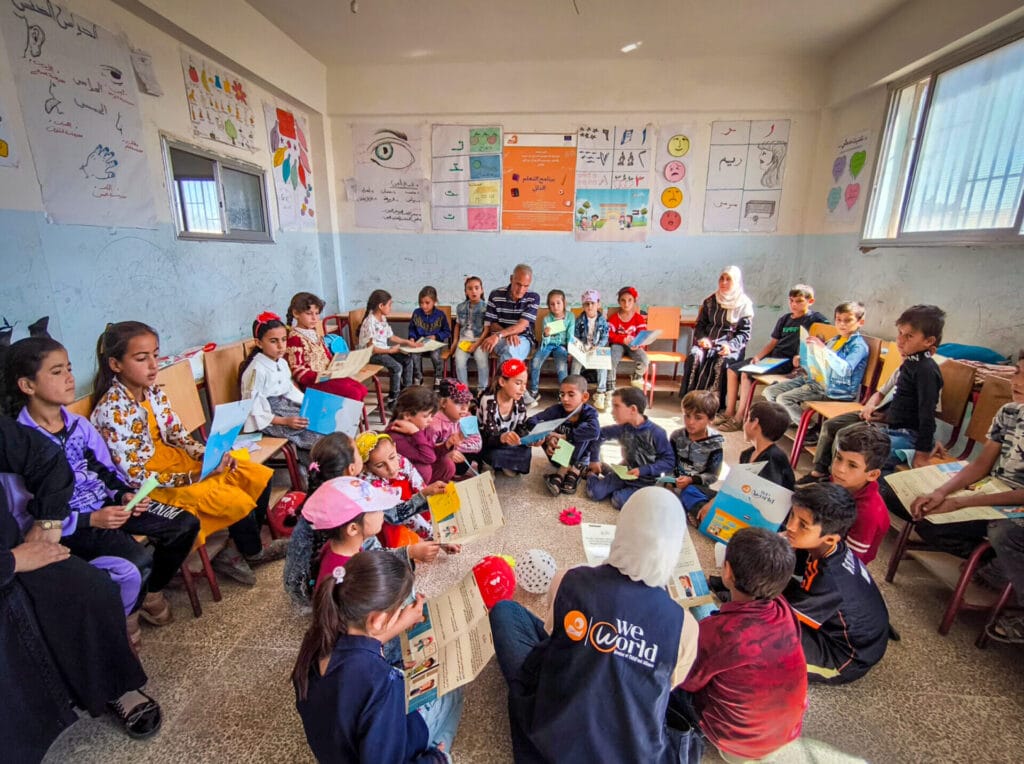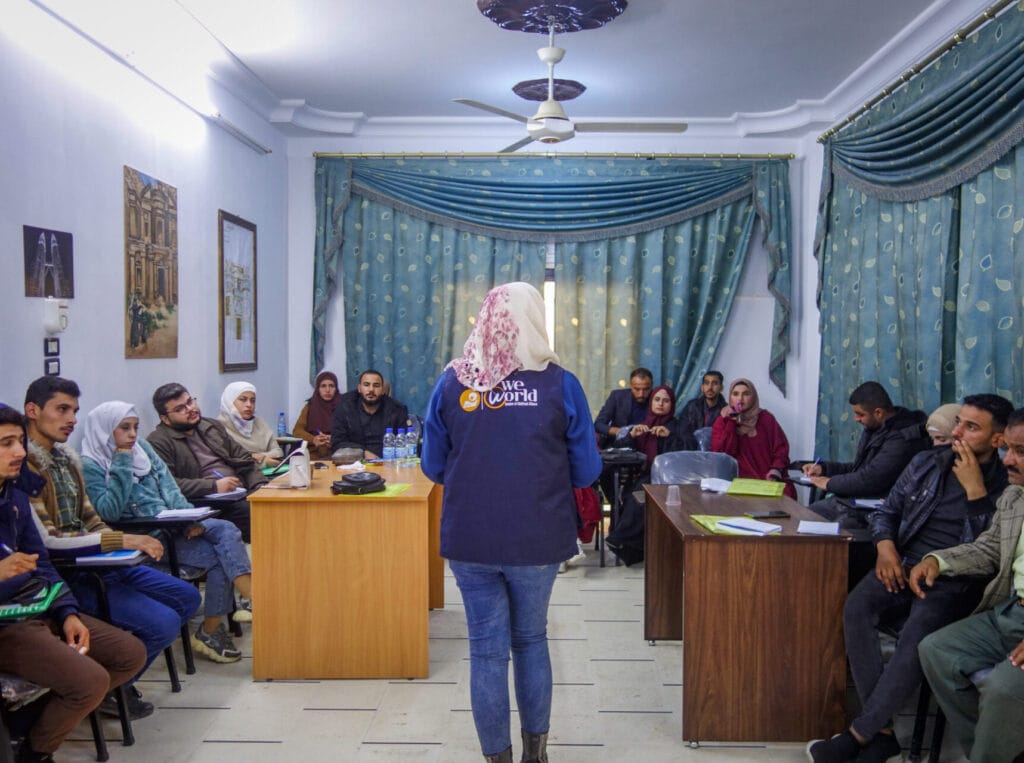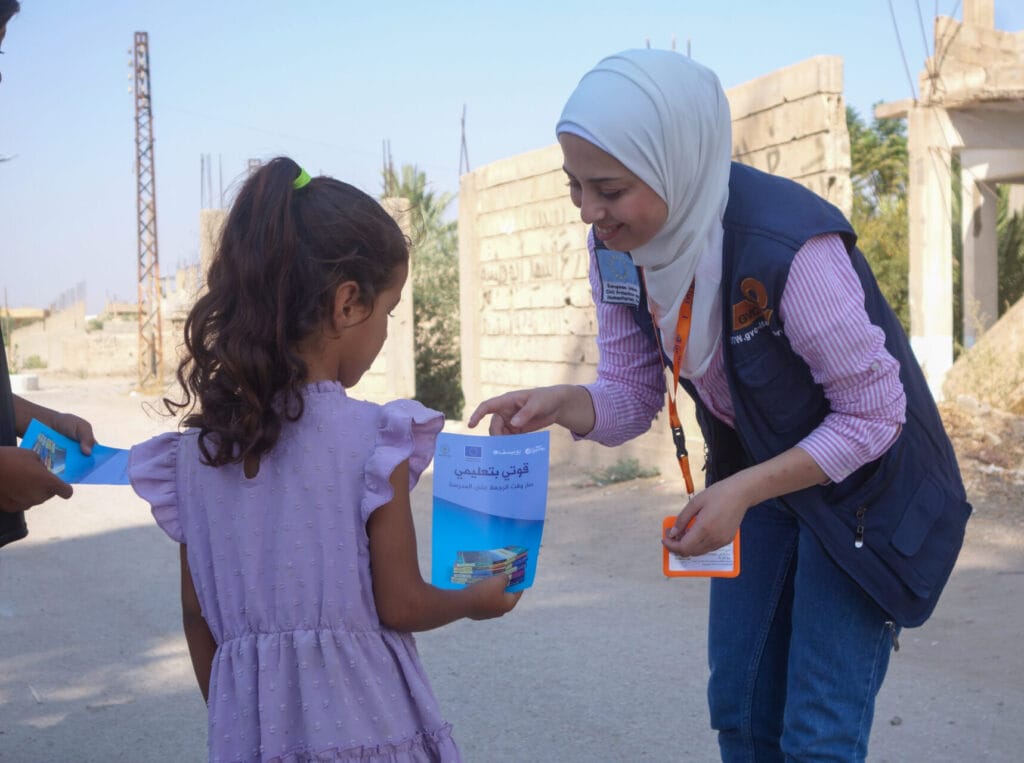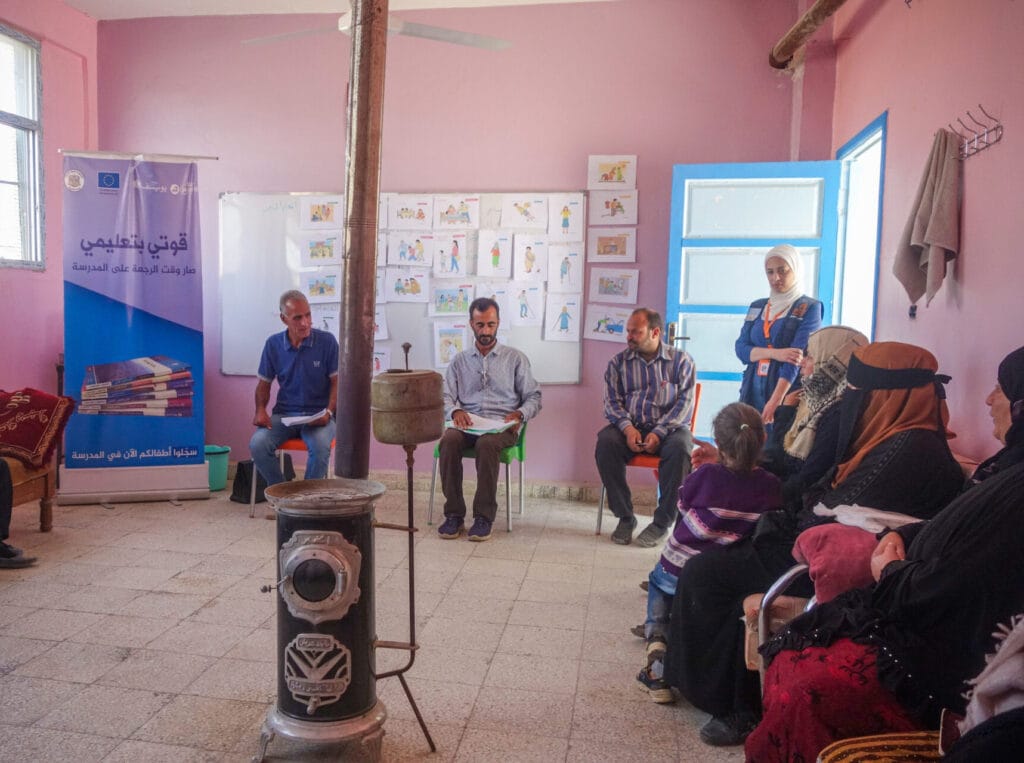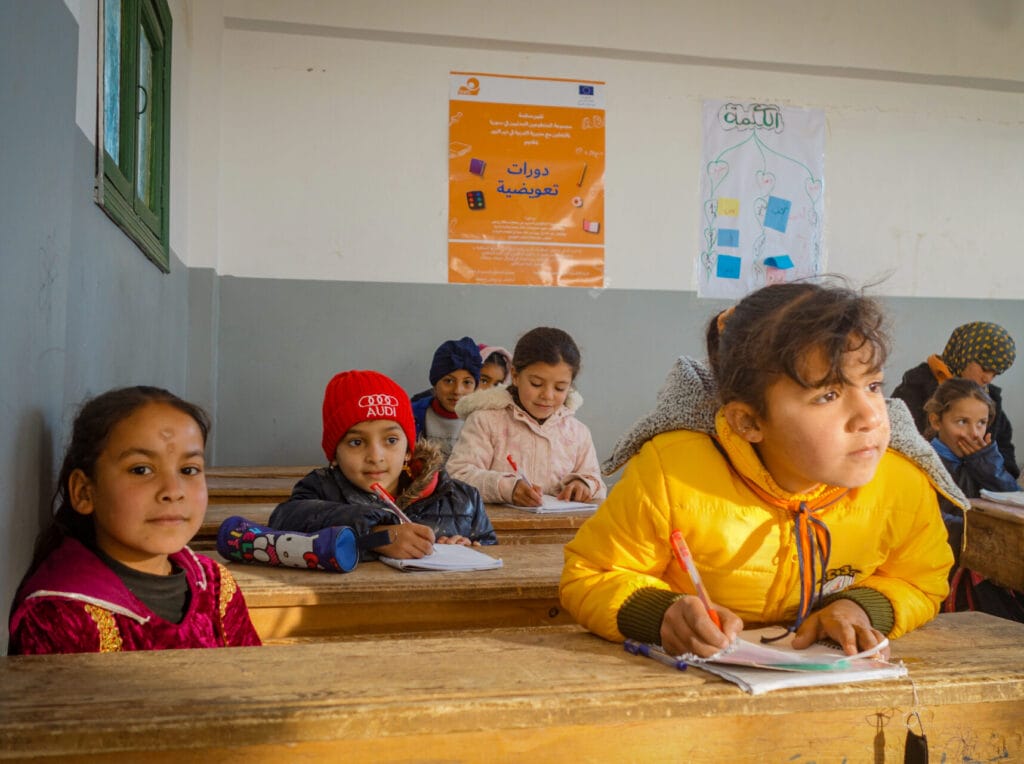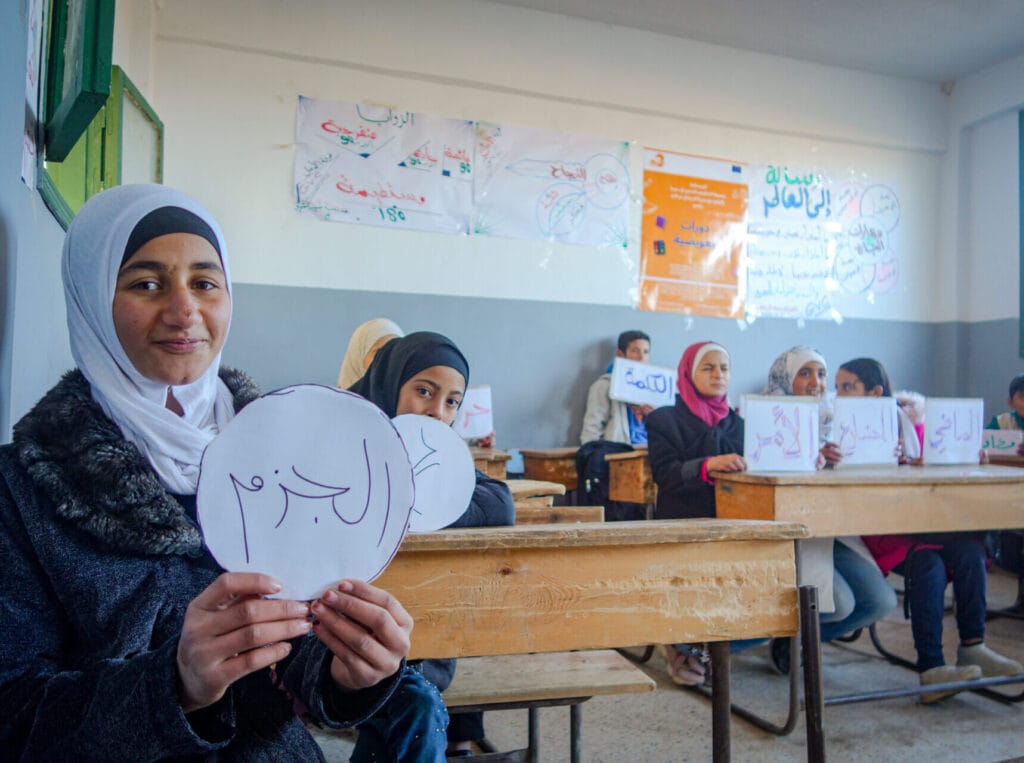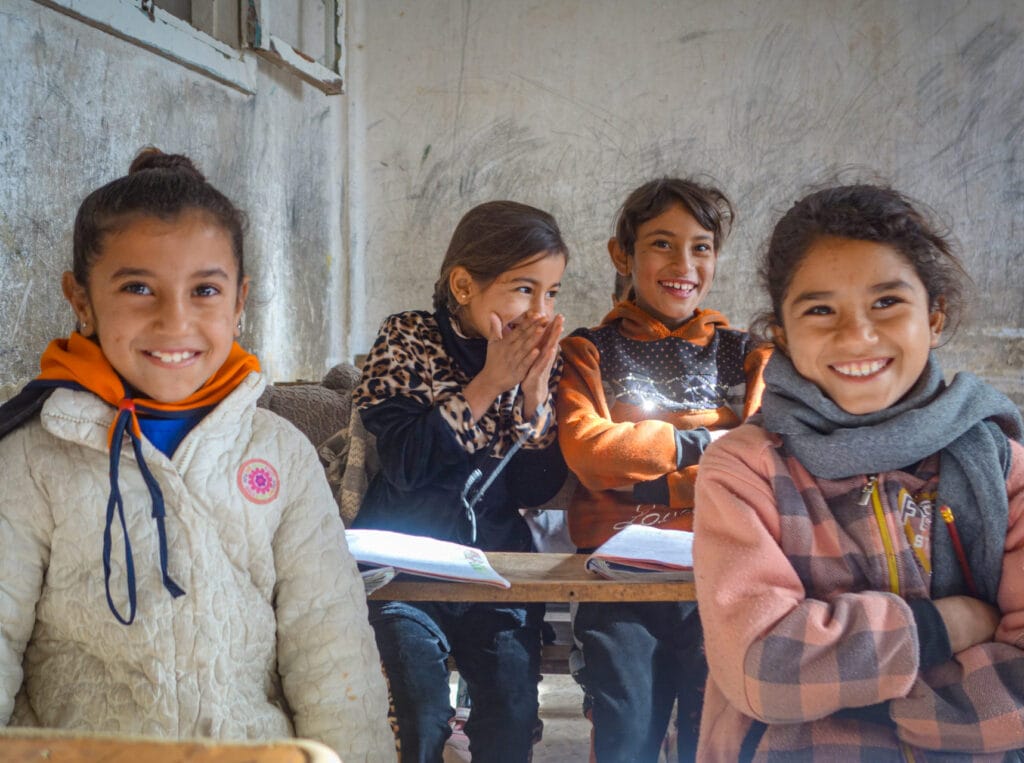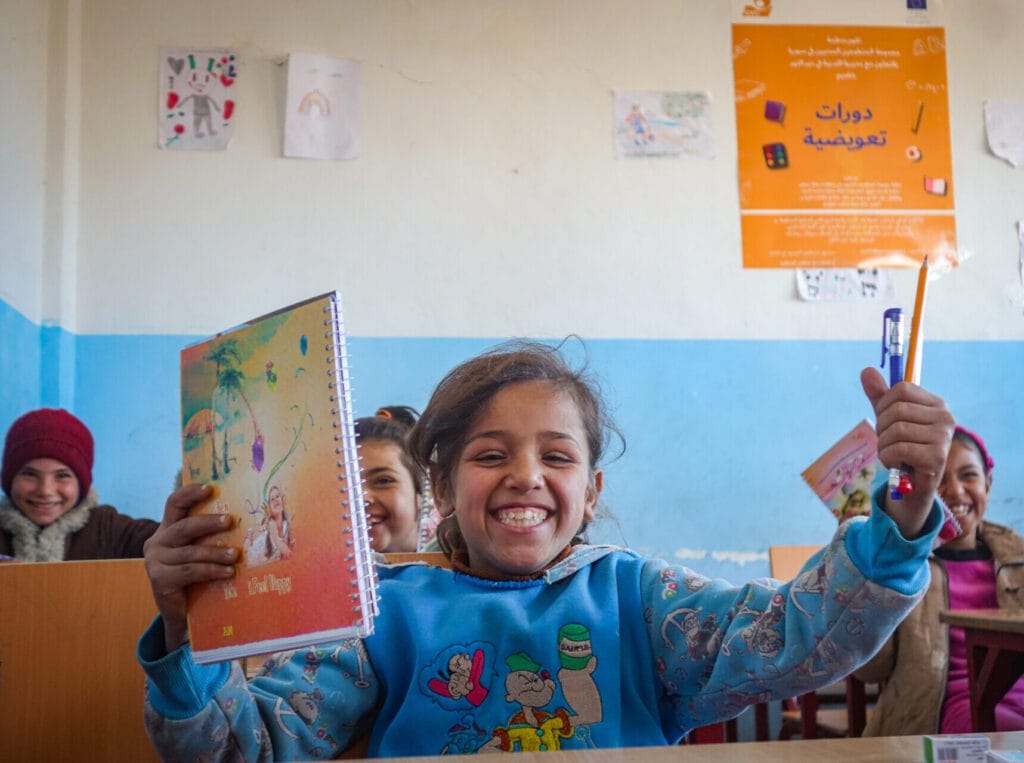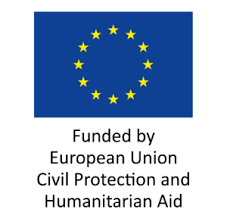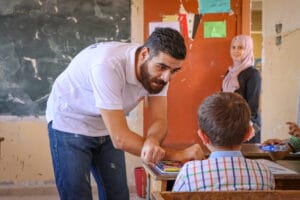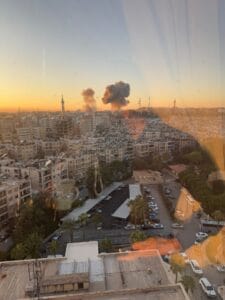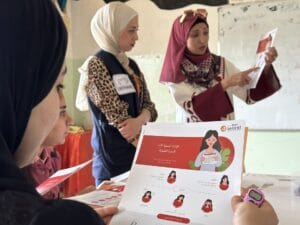
The context
The protracted crisis in Syria has disrupted access to basic services for most of the population, mostly in hard-to-reach and rural areas of the country. The education system has been severely affected at multiple levels: schools have been damaged or destroyed, while the functioning ones are mainly overcrowded with limited availability of school furniture and supplies, insufficient lighting and heating, and inadequate water and sanitation facilities. In this dire context, the number of children who do not attend school increases also due to the long-lasting economic crisis, that has left many families with a lack of livelihood and income-generating opportunities for families, and which generates protection risks such as child labour and early marriage.
Moreover, children with disability do not attend schools due to inaccessibility, social stigma, an unconducive learning environment, and a lack of pedagogical skills of school personnel, apt to address their needs. As a matter of fact, teachers often lack pedagogical and teaching skills endangering quality and effective learning for students. At the same time, there is also a general shortage of teachers due to the fuel crisis, which elevates the cost of transportation for personnel to reach rural facilities.
Along with the barriers to access education, the population in the rural areas of Syria has also been facing many difficulties in accessing safe water due to a series of factors among which are damaged infrastructure, reduced efficiency and consistency of operations, the growing economic deterioration, limited or no maintenance of existing facilities, continuous drain of technical staff, poor natural resource management and exposure to climate-change shocks. In this context, waterborne diseases are increasing, along with the risk of epidemic outbreaks.
Our intervention
To tackle the limited access to basic services for the Syrian population, and in line with previous related programs, WeWorld is working in two main domains with a series of complementary activities:
Education
- Community Outreach, Engagement and Back to learning Initiatives to bring children back into the formal education system
- Non-Formal Education Programmes, for children at risk of drop out and for children facing educational gaps which challenge their retention
- Capacity-building for teachers on different topics such as Life Skills, Psychosocial support, Class Management, Inclusive Education
- Awareness campaigns on child protection topics
- Rehabilitation of and provision of equipment for learning spaces
WASH (Water and Sanitation)
- Community Outreach and Awareness Sessions on Hygiene Promotion and Water Management
- Rehabilitation and support of the maintenance of public water pumping stations
- Rehabilitation of elevated Water Reservoirs and decentralized water networks
- Water Quality Testing and Monitoring
Watch here the short animation produced within the project to show the journey to school and the importance of education for Syrian children.

